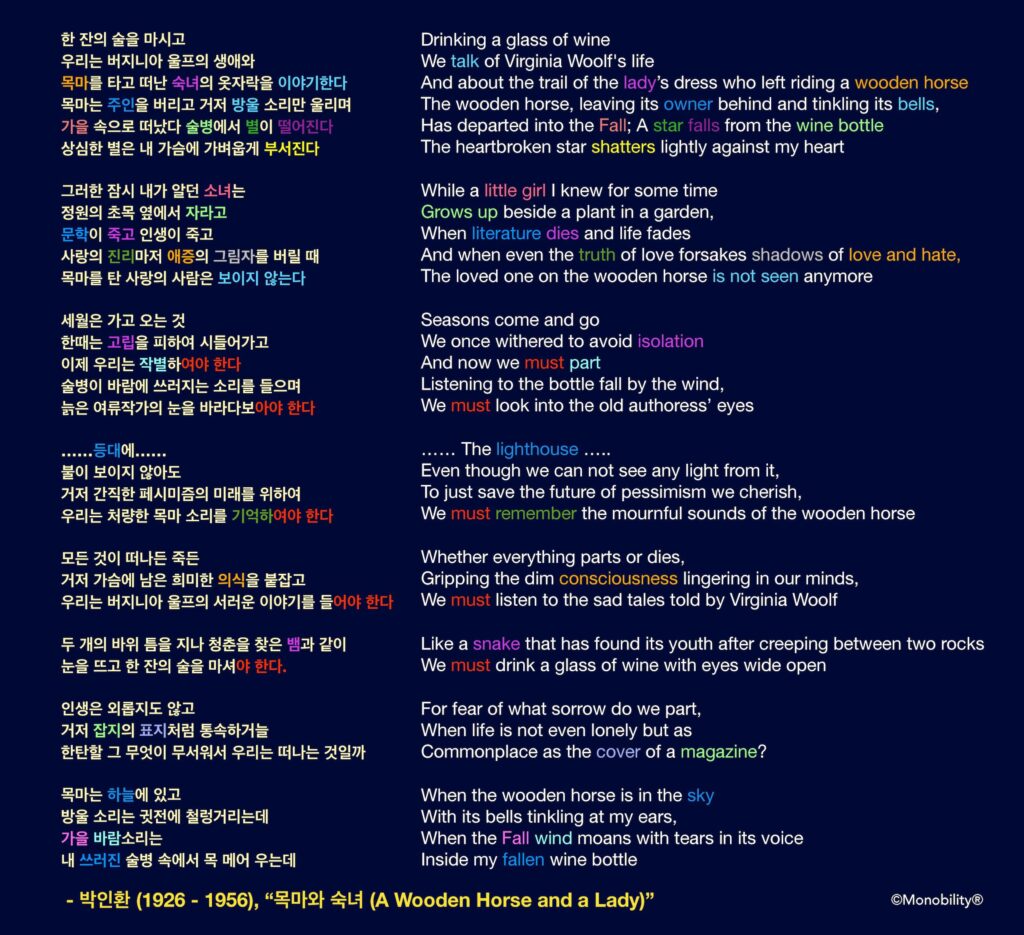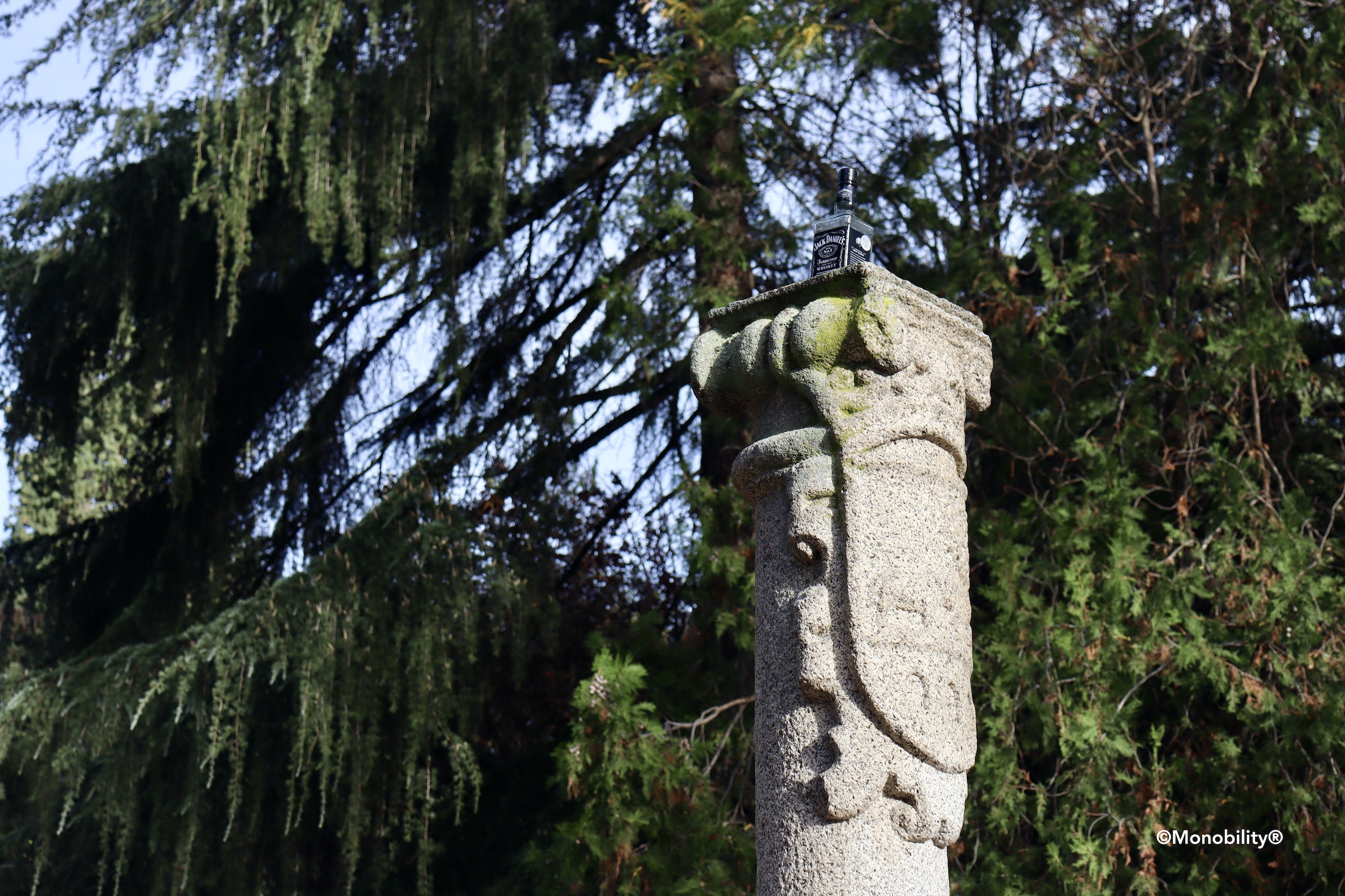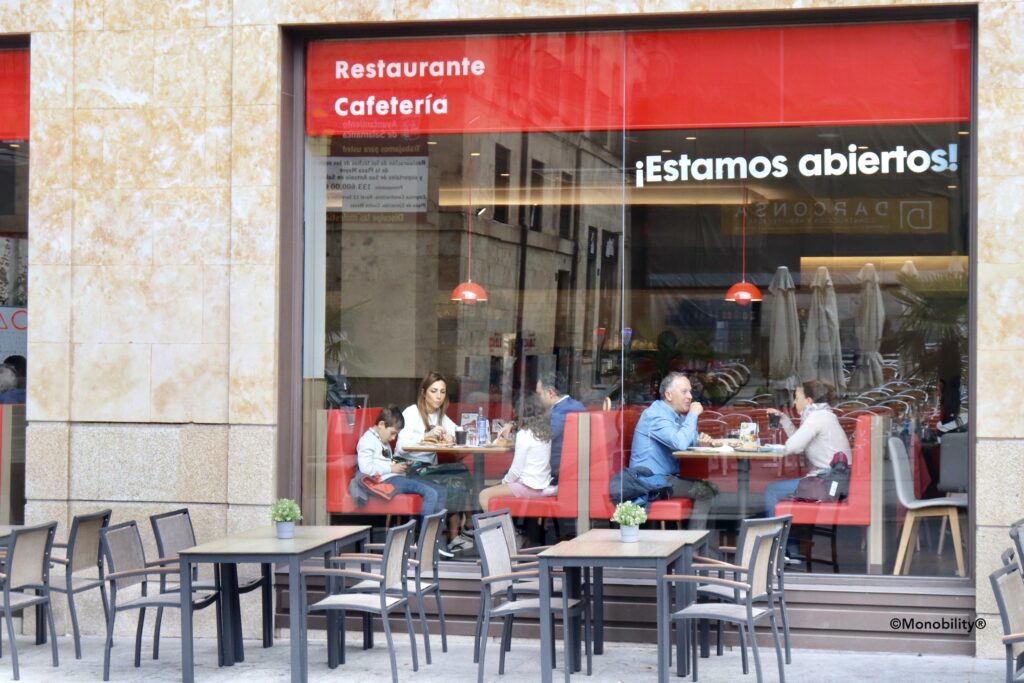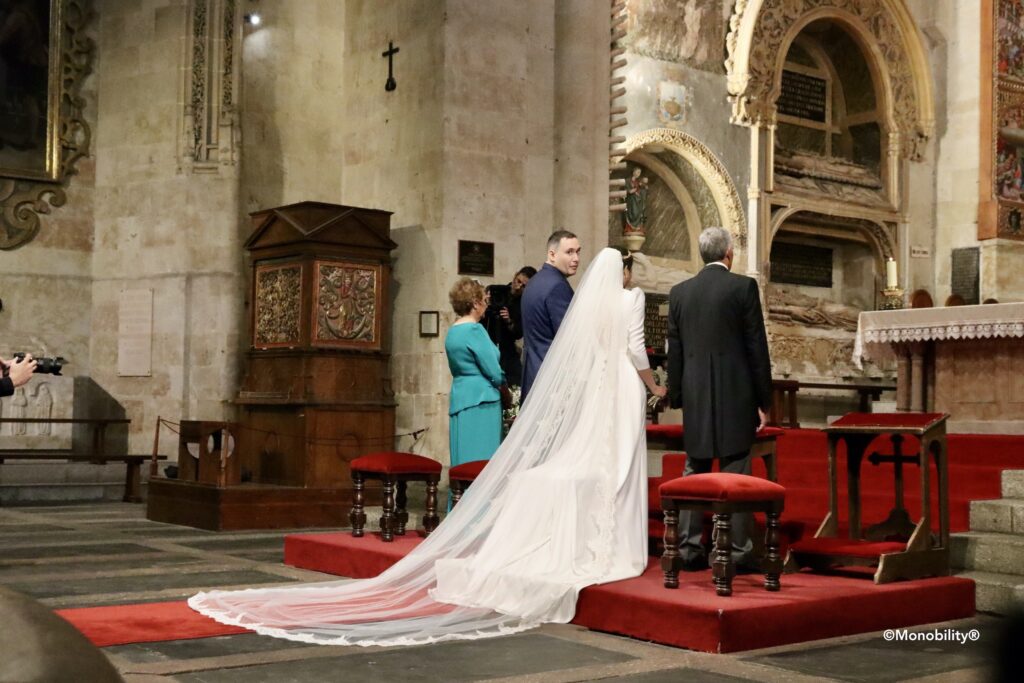Korea is one of the few countries on earth that did not experience colonization by the West and did not colonize other countries. Of course, there were many wars, invasions, and occupations with neighbors, but those events can not be called “colonization” by definition. Without historically deep-rooted preconditioned notions about western people, Koreans sometimes express innocent childlike empathy with anyone from outside, which surpasses space and time. That side of the Korean psyche has often been shown in some K-dramas, movies, and Korean literature. In his famous poem “목마와 숙녀 (A Wooden Horse and a Lady),” the poet 박인환 (1926 – 1956), who died of drinking whiskey too much at the age of 29, pays homage to the English writer Virginia Woolf who committed suicide by drowning herself in 1941, suffering from bipolar disorder throughout her life. His murmuring and coherent voice somehow reminds us of surrealist poems in Europe, and goes beyond just a homage to a fellow human being and literary colleague on the other side of the planet. His poignant lines, especially in the final stanzas, touch the empty hearts of all the surviving Koreans right after the devastating Korean War (1950 – 1953) in the nihilistic atmosphere.

As far as I know, all Korean high schoolers grow up reading and reciting this poem. I hope you now understand how to enjoy the sorrow in the Korean way, too.
In the poem, you may notice that the poet uses sentences ending with “-아/어야 한다” five times in total. “-야 한다” is the most common way to say obligation, meaning “must” or “have to” in Korean. Of course, there are conjugational variations in conversations such as “-야 해요” “-야 합니다” “-야 돼요” “-야 됩니다,” etc. But they all have “-야” before the final verb 하다, and either the phoneme 아 or 어 is inserted between the preceding verb stem and the vowel “야”. So, when do you insert 아, or 어? It follows the Rule of Vowel Harmony (모음조화):
- If the last vowel of the verb stem is ㅏ or ㅗ, use 아 before 야 => -아야 한다:
- 보다 to see, look => 보 + 아야 한다 must/have to look [ vowel of the verb stem 보 is ㅗ => Insert 아 before 야 한다]
- If the last vowel of the verb stem is ㅓ, ㅜ, ㅡ, orㅣ, use 어 before 야 => -어야 한다:
- 먹다 to eat => 먹 + 어야 한다 must/have to eat [ vowel of the verb stem 먹 is ㅓ => Insert 어 before 야 한다]
- 듣다 to listen => 들 + 어야 한다 must/have to listen [ vowel of the verb stem 듣 is ㅡ => 듣 becomes 들 (irregular verb), and Insert 어 before 야 한다 ]
- All those ubiquitous verbs ending with -하다 conjugate into -해야 한다. Its literary form is -하여야 하다, used only in written Korean.
- 사랑하다 to love => 사랑해야 한다 must love [ = 사랑하여야 한다 literary ]
- 기억하다 to remember => 기억해야 한다 must remember [ = 기억하여야 한다 literary ]
For more details on the Rule of Vowel Harmony, check my previous post as a recap:
P.S.> 박인환 wrote another famous poem loved by many Koreans – 세월이 가면:
Join Monobility® Group for much more:



